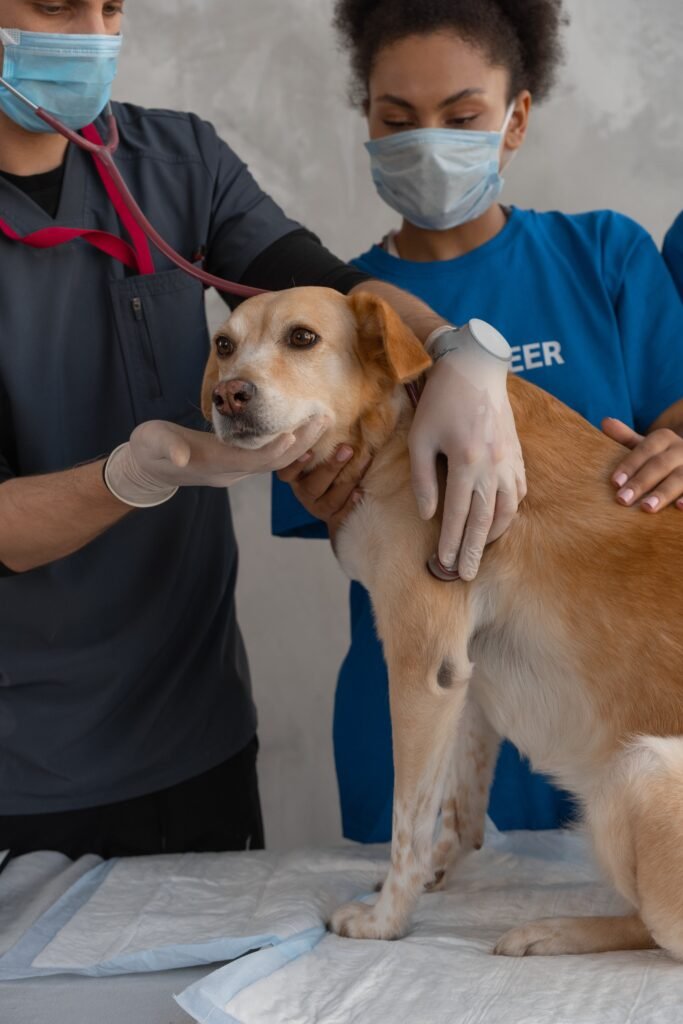Veterinary Nurse Salary: In-Depth Insights for Aspiring Professionals
In recent years, the veterinary industry has witnessed tremendous growth and increased demand for qualified professionals. Among these professionals, veterinary nurses play a crucial role in providing high-quality care to animals and ensuring efficient management of veterinary practices. This article delves into the earning potential of vet nurses with a comprehensive guide on salaries within the profession.
Professional veterinary nurses come from diverse backgrounds, with varied levels of experience and specialized skills. As such, a range of factors can influence the salaries of these medical experts. Exploring these factors will provide aspiring veterinary nurses with a better understanding of the earning potential within their chosen field.
The following information is gathered primarily from authoritative sources and reflects the latest data available on vet nurse salary trends. Readers will find valuable insights on average salaries, factors that affect income, and potential strategies for maximizing their earnings in the highly rewarding field of veterinary medicine.

Understanding the Veterinary Nursing Profession
Veterinary nursing is a critical profession within the world of animal care, combining medical knowledge, technical skills, and a compassionate approach to provide exceptional care for animals. A veterinary nurse works closely with veterinarians, assisting in surgeries, monitoring patients, and educating pet owners on proper animal care. This profession offers growth and recognition for individuals who are passionate about animal welfare.
The daily tasks of a veterinary nurse may include:
- Administering medication
- Assisting in surgeries
- Taking blood samples
- Monitoring anesthesia
- Providing wound care
- Assisting with diagnostic tests
- Maintaining medical records
To become a veterinary nurse, one must complete the necessary education and training. In most cases, this includes completing a formal education program such as a degree or diploma in veterinary nursing, followed by passing a licensing exam. Depending on the country and specific requirements, there might also be an apprenticeship or on-the-job training component. It is recommended that aspiring veterinary nurses research their local requirements to ensure they meet all criteria.
As with most professions, the salary for a veterinary nurse can vary depending on factors such as:
- Location
- Years of experience
- Education and qualifications
- Size of the practice
- Specializations and certifications
In general, entry-level veterinary nurses can expect to earn a modest salary, which will increase as they gain more experience and acquire additional skills or certifications within the field. Experienced veterinary nurses may also choose to specialize in certain areas, such as emergency and critical care, dentistry, or anesthesia, which could potentially lead to higher salaries and increased job opportunities.
Factors Influencing Vet Nurse Salaries
Education and Certification
The level of a vet nurse’s education and certification plays a significant role in determining their salary. Those who have completed higher education or earned a specialized certification will be able to command higher salaries. For example:
- Vet nurses with a diploma in Veterinary Nursing: $30,000 – $45,000
- Vet nurses with a bachelor’s degree in Veterinary Nursing: $45,000 – $60,000
- Vet nurses with a specialized certification (e.g. Veterinary Technician Specialist): $60,000 – $75,000
Note: These figures are approximate and may vary based on the individual’s experience, location, and other factors.
Experience Level
As with many professions, the level of experience greatly affects a vet nurse’s salary. As vet nurses gain more experience, they are likely to earn higher wages. On average, a vet nurse’s salary range based on years of experience includes:
- Entry-level (0-2 years): $25,000 – $35,000
- Mid-level (3-5 years): $35,000 – $45,000
- Experienced (6-10 years): $45,000 – $55,000
- Highly experienced (10+ years): $55,000+
Geographical Location
The cost of living and demand for vet nurses differ across various regions, which directly affects salary expectations. In areas with a higher cost of living or greater demand for vet nurse services, wages tend to be higher than in less expensive or less populated areas. For example, vet nurses working in urban centers generally earn more than those in rural areas.
Type of Practice
Vet nurse salaries can also be influenced by the type of practice they work in. There is a range of veterinary fields and settings in which a vet nurse can work—each with its unique salary expectations:
- Small animal practice: $32,000 – $48,000
- Large animal practice: $35,000 – $52,000
- Emergency clinics: $40,000 – $55,000
- Specialty clinics (cardiology, oncology, orthopedics, etc.): $45,000 – $60,000
- Research facilities or pharmaceutical companies: $50,000 – $70,000
In conclusion, numerous factors can impact a vet nurse’s salary, including education and certification, experience level, geographical location, and the type of practice in which they work. It is important for vet nurses to consider these factors when negotiating salaries or seeking new career opportunities.

Average Salary Benchmarks for Vet Nurses
National Averages
The average salary for veterinary nurses across the United States typically falls within the $30,000 to $45,000 range, depending on factors such as experience, education, and location. Entry-level positions may start at approximately $25,000, while more experienced vet nurses can earn upwards of $60,000.
Salary ranges tend to vary by state, with certain areas offering higher pay due to demand or cost of living. Some of the top-paying states for veterinary nurses include:
- California: $45,000 – $65,000
- New York: $40,000 – $60,000
- Texas: $35,000 – $55,000
Additional income can be earned via certifications and specialization, such as becoming a Veterinary Technician Specialist (VTS).
International Comparisons
When comparing vet nurse salaries across the globe, it is important to consider factors like the currency exchange rate, cost of living, and demand for veterinary professionals in various countries. Here are a few examples of average annual salaries for vet nurses in different countries (in USD):
| Country | Average Salary |
|---|---|
| United Kingdom | $28,000 – $42,000 |
| Canada | $30,000 – $50,000 |
| Australia | $33,000 – $55,000 |
| New Zealand | $29,000 – $45,000 |
In general, the salary for vet nurses in these countries tend to be comparable to or slightly lower than that in the United States. However, it is essential to consider lifestyle factors and personal career fulfillment when making comparisons and decisions about potential international opportunities.
Maximizing Your Earning Potential
Specialization and Continuing Education
To increase your earnings as a vet nurse, consider investing in specialization and continuing education. By obtaining additional certifications, you demonstrate a commitment to staying current in your field and can command higher salaries. Some certifications you can pursue include:
- Veterinary Technician Specialist (VTS) in areas such as anesthesia, dentistry, or internal medicine
- Equine Veterinary Nurse (EVN) for those interested in working with horses
- Wildlife Veterinary Nurse for those wanting to focus on exotic and wild animals
Additionally, attending professional conferences and workshops enhances your skills and keeps you up-to-date with industry trends.
Negotiation Strategies
When seeking a higher salary, it’s important to have effective negotiation strategies in place. Here are a few tips to help you advocate for yourself:
- Research and know your worth: Familiarize yourself with industry standards and vet nurse salaries in your area. Websites like Glassdoor, Indeed, or Payscale can help you get a sense of local and national salary benchmarks.
- Quantify your achievements: Keep a record of your accomplishments, including any positive feedback from clients or colleagues. Use this information to demonstrate your value to your employer.
- Be prepared to compromise: Enter negotiations with a specific salary range in mind. Be prepared to discuss potential alternatives, such as additional benefits or flexible hours, if your initial request is not met.
Career Advancement
Finally, consider career advancement opportunities to increase your earning potential. Possibilities include:
- Becoming a veterinary practice manager or supervisor: This role involves managing schedules, budgets, and staff, as well as implementing policies and procedures.
- Transitioning to a pharmaceutical sales position: This path allows you to leverage your knowledge and experience to advise veterinarians on the latest medications and medical devices.
- Pursuing additional education to become a veterinarian or veterinary specialist: By obtaining a Doctor of Veterinary Medicine (DVM) degree or a board certification, you can attain roles with higher income potential and more responsibility.
By focusing on specialization, negotiation skills, and career advancement opportunities, you can enhance your earning potential and enjoy continued success in your profession as a vet nurse.

Challenges and Considerations in Vet Nursing
Vet nursing is a rewarding career, but it also presents a unique set of challenges and considerations. This section will discuss some of these issues, helping you make an informed decision about pursuing a career in this field.
One of the primary difficulties in vet nursing is the emotional aspect of the job. Vet nurses frequently encounter animals in pain and distress, as well as grieving pet owners. It is vital to have strong emotional resilience and excellent communication skills in order to handle these situations.
Additionally, vet nurses must be prepared to deal with a variety of workplace hazards. These include:
- Exposure to infectious diseases
- Injuries from animals (bites, scratches, kicks)
- Allergic reactions to fur, dander, and chemicals
- Physical strain from lifting and restraining animals
- Radiation exposure (limited)
It is essential to follow strict safety guidelines in the workplace to minimize these risks.
Another consideration in a career in vet nursing is working hours and scheduling. This may include evenings, weekends, and holidays, as many veterinary clinics offer emergency services outside regular office hours. Vet nurses must be adaptable and able to maintain a work-life balance in this dynamic environment.
When it comes to salary and earnings, vet nursing can be a fulfilling occupation, but it may not be as lucrative as other healthcare professions. According to the U.S. Bureau of Labor Statistics, the median annual wage for veterinary technologists and technicians was $35,320 in May 2020. However, this may vary widely depending on factors such as:
- Geographic location
- Years of experience
- Education level
- Type of employer (private practice, animal hospital, research facility, etc.)
Finally, it is essential to be aware of the educational and licensing requirements for the profession. In most countries, vet nurses are required to have a relevant degree or diploma and may need to pass a licensure exam to practice legally. Continuing education and professional development are also important components of a career in vet nursing, as the field continually changes with new advancements and techniques.
In summary, while vet nursing is a rewarding and fulfilling career, it is not without its unique set of challenges. When making a decision about pursuing this profession, it is crucial to consider the emotional demands, workplace hazards, working schedule, salary potential, and educational requirements involved.









[…] anesthesia to patients during various medical procedures. As one of the highest-paying nursing professions, it is common for those considering a career in nursing to research which CRNA specialties offer […]